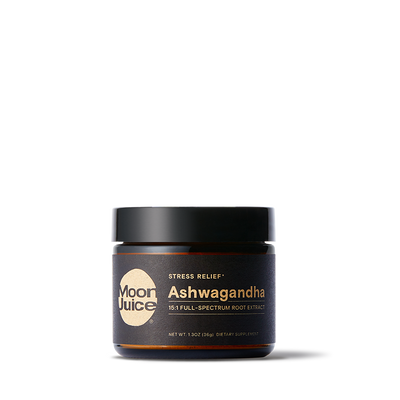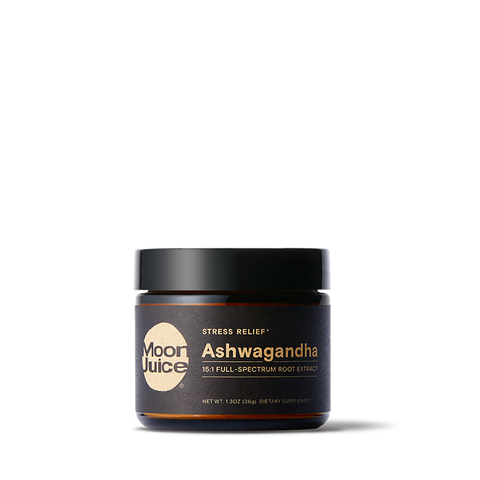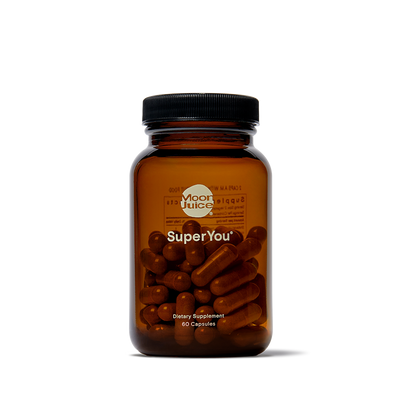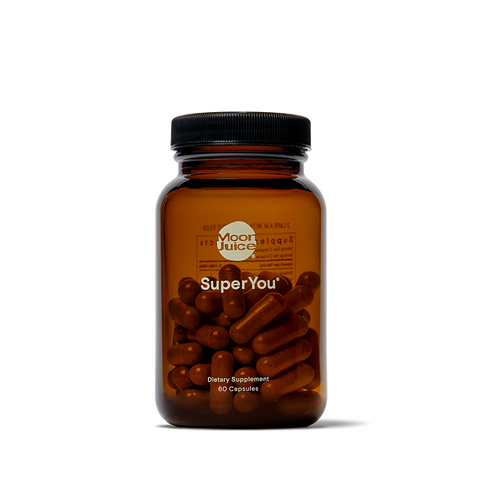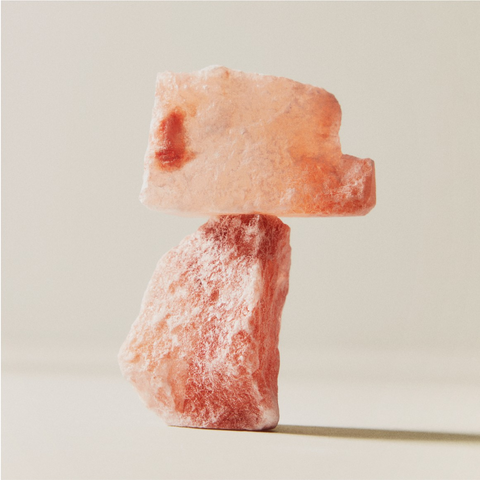Ashwagandha is an adaptogen clinically shown to help reduce stress and regulate cortisol levels, enhance focus and mental stamina, and reduce irritability and stress-related cravings. Also known by its scientific name, Withania somnifera, this helpful adaptogen for stress comes from the root of a flowering shrub native to India, Nepal, and parts of Southern Africa. It’s been used for thousands of years in Ayurvedic practice as a Rasayana, or rejuvenating tonic.1
Ashwagandha powder has become a popular ingredient in adaptogenic supplements, but many people prefer to use it in cycles as opposed to every day. So what does the science say—should you cycle Ashwagandha? Read on to explore all things Ashwagandha cycling and how to cycle Ashwagandha for the best results.
What is Ashwagandha Cycling?
Ashwagandha cycling refers to the practice of using this herbal supplement for a set number of weeks or months at a time and then pausing for a set number of weeks or months before taking it up again. Many people believe that this approach to Ashwagandha powder supplementation can help maximize its efficacy by allowing your system a break so that it doesn’t become desensitized to the herb through long-term daily use.
Ashwagandha is known to have numerous benefits. So what are the benefits of Ashwagandha exactly? Turns out, there is a close tie between Ashwagandha and stress relief. This mood root has been shown to help lower stress and regulate cortisol. It can help with sleep quality, athletic performance (by way of muscle mass and oxygen consumption), hair health, cognitive function including memory, and sex drive. Proponents of Ashwagandha cycling believe that alternating between periods of use and periods of disuse can help your body avoid developing a tolerance to the dietary supplement so as to enhance these benefits and prevent certain side effects.
Do You Need to Cycle Off Ashwagandha?
So, do you actually need to do an Ashwagandha cycle, or should you take it consistently every day, week in and week out?
Further research on Ashwagandha cycling is needed to determine whether cycling is generally beneficial or whether consistent, long-term use is best. Though this herb has been used in traditional practice for millenia, Western science is still catching up, and it’s unclear whether cycling is truly effective. Clinical studies have been performed using a period of 3 months, 8 weeks, or less, so it’s difficult to say decisively whether a longer cycle would bear different results.
For that reason, it’s always a good idea to work with your healthcare provider on incorporating dietary supplements into your ritual based on your personal medical profile and needs. Different people will have different reasons for taking adaptogenic herbs, as well as different body types, different medical histories, different lifestyles, and different responses to supplements. When using the Ashwagandha plant, it’s important to take all of these into consideration. Talk to a healthcare professional about when you should take Ashwagandha and how to ensure that you are getting the best dosage for your unique needs.
Standard Cycling Protocol for Ashwagandha
When people choose to cycle Ashwagandha powder or other adaptogens, there are different cycle periods that they might try.
For instance, a short-term cycle might last for 1-1.5 months. A medium-term cycle might last for 2-3 months, and a long-term cycle might last for up to 6 months.
Some people choose to order a 3-month supply of daily Ashwagandha and add it to their morning or evening supplements, then when they run out, wait to reorder for 3 months, then repeat. Another individual might try taking Ashwagandha daily—being diligent about noting its effects—and only pause if and when they notice waning results or side effects.
Whatever your Ashwagandha cycling method, it’s important to be consistent within that if you want to see accurate and optimal results. Cycling doesn’t mean yo-yoing. Even though there’s no gold standard for Ashwagandha cycling, what we do know is that certain results have been registered in clinical studies with consistent use over time. So within your set Ashwagandha cycling period, or generally, take your herbal supplement daily and note any changes you experience.
How to Cycle Ashwagandha
We’ve established that as of yet, there’s no consensus around Ashwagandha cycling in the scientific community. But if you want to try it out for yourself, here are the steps to take for the best results.
Decide Which Cycle Length to Try
First off, figure out what results you want to see from taking your adaptogen. Less stress? Better sleep? Athletic performance? Or something else?
Your reason or reasons for Ashwagandha consumption can help you determine which cycle length is best to start with. Keep in mind that the following trial periods aren’t recommendations but simply a reflection of the trial lengths that have been studied for specific results.
- For stress: In the scientific literature, daily doses of 225-600 mg taken consistently for 1-2 months have been shown to lower cortisol levels significantly compared to the control group.2,3,4
- For workouts: If you’re looking to boost muscle strength and size, there are a few studies that cover this. In one, males who took 600 mg of Ashwagandha per day for 8 weeks saw a 1.5-1.7 times increase in muscle size compared to the placebo.5 Similar effects have been observed in a shorter period of 30 days with an intake of 750-1,250 mg daily.6 In another study, participants who took 500 mg of Ashwagandha extract over a 12-week period experienced a significant increase in upper and lower body strength (in combination with resistance training).7
- For sleep: Several studies have shown that Ashwagandha benefits sleep quality, especially in those with difficulty sleeping, as well as improved mental alertness and mood in the mornings. In the small placebo-controlled study that looked at 58 participants,1 those who took the 250 or 600 mg of Ashwagandha supplements not only felt less stress, but also reported significantly better quality of sleep compared to those who took the placebo. Another study of 50 senior adults8 found that those who took 600 milligrams of Ashwagandha each day for 12 weeks experienced significantly better sleep and felt more mentally alert in the mornings compared to the control group.
- For cognition: Ashwagandha may help boost aspects of cognitive function such as memory and focus. In an 8-week study, a daily intake of 300 mg of Ashwagandha root extract improved memory, focus, and task performance,9 while in another study,10 the same amount led to significant improvements in memory and focus after 90 days in adults who had high levels of stress.
- For hair health: One study found that topical application of Ashwagandha root extract daily for 75 days improved hair growth and hair health metrics in healthy adults between 18 and 45 years with mild to moderate hair loss.11
Ashwagandha is considered safe for most people. But because research is still limited when it comes to Ashwagandha cycling terms, it’s important to note that these are not medical recommendations. These are simply previous studies that have been done at different trial periods exploring different results. So take this with a grain of salt, and as always, consult your doctor before taking new supplements if you’re worried that they might conflict with another medication, a pregnancy, a lifestyle factor, or a pre-existing condition.
Find a Reliable Supplement
Supplement quality matters, and cycling or not, your adaptogens may not have much of an impact if they’re not sourced, extracted, and dosed with high standards.
Moon Juice Ashwagandha root extract is an organic 15:1 full-spectrum Ashwagandha root powder supplement sourced from India. Its bitter, molasses-like flavor pairs well with chocolate, coffee, maple syrup, and baked goods. The suggested use is between ¼ and ½ teaspoons daily to experience optimal benefits.
To experience Ashwagandha with other adaptogens, Moon Juice SuperYou is a good option. Four potent adaptogens traditionally used in Ayurveda and TCM - Ashwagandha, Shatavari, Rhodiola, and Amla - help alleviate the emotional, mental, hormonal, and physical manifestations of stress. Add this natural stress relief supplement to your routine and experience the power of adaptogens.

Adjust As Needed
After determining your cycle length, it will be important to track changes on a daily or weekly basis. You may want to keep a notebook so you can jot down any results you’re noticing. If you decide to pause at the end of a cycling period and go into a pause cycle, take note then, too. After a year or so of cycling, you may have a lot of information about how Ashwagandha works for you.
Takeaways
The jury is out on whether Ashwagandha cycling is actually beneficial compared to consistent daily use over a long-term period. Further research needs to be done before we can accurately assess which approach is best, so for the time being, it’s a good idea to listen to your body and your holistic healthcare provider.
Depending on why you’re taking this adaptogen, you may want to try different cycles, because the Ashwagandha plant has been studied for different effects over different clinical trial periods.
When incorporating Ashwagandha into your wellness ritual, determine your main reason for taking it, choose a quality supplement that’s been carefully sourced and extracted, and be consistent during the cycle that you decide to try. Most importantly, take notes to track its effects on your body and mind so that you can adjust as needed.
Sources
- Singh, N., Bhalla, M., de Jager, P., & Gilca, M. (2011). An overview on ashwagandha: a Rasayana (rejuvenator) of Ayurveda. African journal of traditional, complementary, and alternative medicines : AJTCAM, 8(5 Suppl), 208–213. https://doi.org/10.4314/ajtcam.v8i5S.9.
- Lopresti, A. L., Smith, S. J., Malvi, H., & Kodgule, R. (2019). An investigation into the stress-relieving and pharmacological actions of an ashwagandha (Withania somnifera) extract: A randomized, double-blind, placebo-controlled study. Medicine, 98(37), e17186. https://doi.org/10.1097/MD.0000000000017186
- Salve, J., Pate, S., Debnath, K., & Langade, D. (2019). Adaptogenic and Anxiolytic Effects of Ashwagandha Root Extract in Healthy Adults: A Double-blind, Randomized, Placebo-controlled Clinical Study. Cureus, 11(12), e6466. https://doi.org/10.7759/cureus.6466
- Remenapp, A., Coyle, K., Orange, T., Lynch, T., Hooper, D., Hooper, S., Conway, K., & Hausenblas, H. A. (2022). Efficacy of Withania somnifera supplementation on adult's cognition and mood. Journal of Ayurveda and integrative medicine, 13(2), 100510. https://doi.org/10.1016/j.jaim.2021.08.003
- Ziegenfuss, T. N., Kedia, A. W., Sandrock, J. E., Raub, B. J., Kerksick, C. M., & Lopez, H. L. (2018). Effects of an Aqueous Extract of Withania somnifera on Strength Training Adaptations and Recovery: The STAR Trial. Nutrients, 10(11), 1807. https://doi.org/10.3390/nu10111807
- Wankhede, S., Langade, D., Joshi, K., Sinha, S. R., & Bhattacharyya, S. (2015). Examining the effect of Withania somnifera supplementation on muscle strength and recovery: a randomized controlled trial. Journal of the International Society of Sports Nutrition, 12, 43. https://doi.org/10.1186/s12970-015-0104-9
- Raut, A. A., Rege, N. N., Tadvi, F. M., Solanki, P. V., Kene, K. R., Shirolkar, S. G., Pandey, S. N., Vaidya, R. A., & Vaidya, A. B. (2012). Exploratory study to evaluate tolerability, safety, and activity of Ashwagandha (Withania somnifera) in healthy volunteers. Journal of Ayurveda and integrative medicine, 3(3), 111–114. https://doi.org/10.4103/0975-9476.100168
- National Library of Medicine, Efficacy and Tolerability of Ashwagandha Root Extract in the Elderly for Improvement of General Well-being and Sleep: A Prospective, Randomized, Double-blind, Placebo-controlled Study. https://www.ncbi.nlm.nih.gov/pmc/articles/PMC7096075/
- Choudhary, D., Bhattacharyya, S., & Bose, S. (2017). Efficacy and Safety of Ashwagandha (Withania somnifera (L.) Dunal) Root Extract in Improving Memory and Cognitive Functions. Journal of dietary supplements, 14(6), 599–612. https://doi.org/10.1080/19390211.2017.1284970
- Gopukumar, K., Thanawala, S., Somepalli, V., Rao, T. S. S., Thamatam, V. B., & Chauhan, S. (2021). Efficacy and Safety of Ashwagandha Root Extract on Cognitive Functions in Healthy, Stressed Adults: A Randomized, Double-Blind, Placebo-Controlled Study. Evidence-based complementary and alternative medicine : eCAM, 2021, 8254344. https://doi.org/10.1155/2021/8254344
- Yerram, C., Jillella, A., & Reddy, V. (2023). Effects of Withania somnifera root extract serum application on hair health in healthy adults: A prospective, double-blind, randomized, parallel, placebo-controlled study. Journal of Ayurveda and integrative medicine, 14(6), 100817. https://doi.org/10.1016/j.jaim.2023.100817




